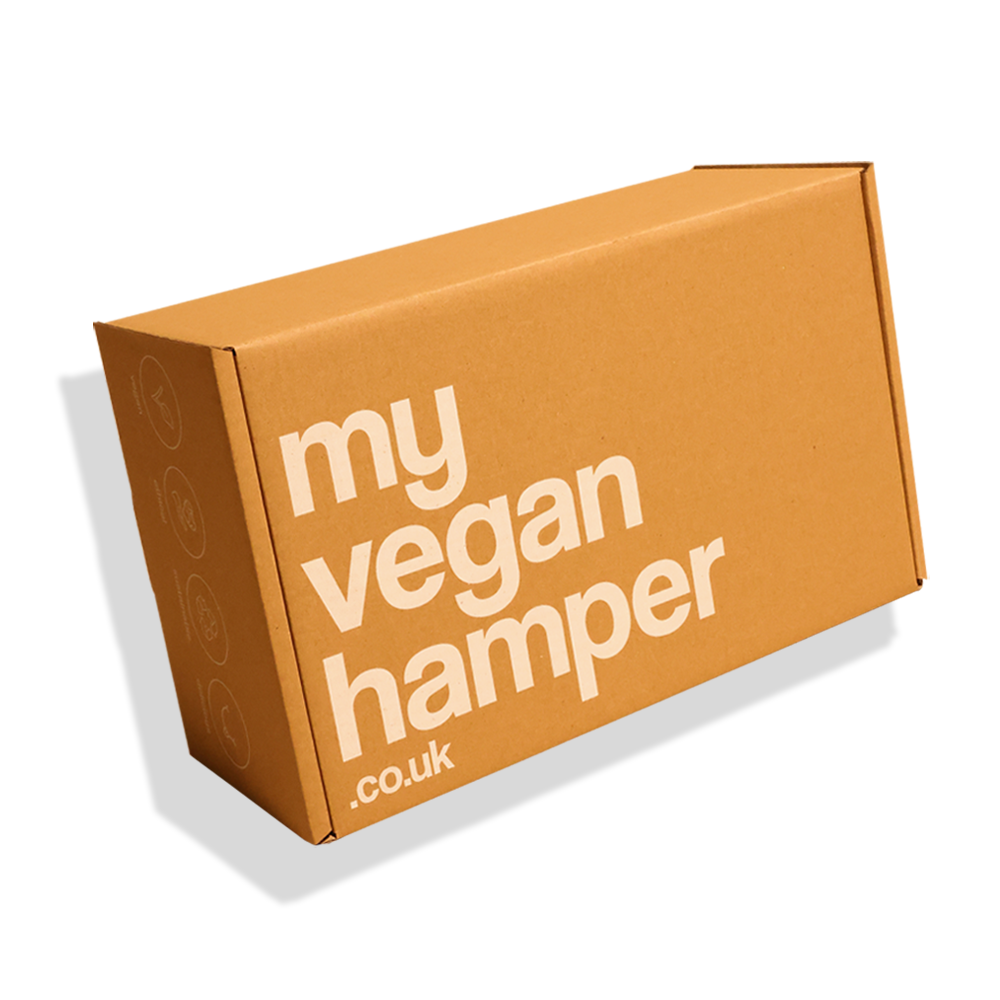What is the healthiest vegan meat?
Vegan meat is the food of the future. It’s calorically dense, high in protein, but also low in saturated fat – which is almost never the case in their animal product counterparts. But does this only apply to minimally processed soy-based vegan meats like tofu, tempeh, and seitan? Or can the same be said about plant-based meat alternatives like vegan sausages, vegan burgers, and vegan bacon? Read on for a vegan meats nutritional showdown.
What is vegan meat called?
Before we dive into the nutritional nitty-gritty, we’d better run through a few commonly used terms in the ever-expanding world of plant-based meats. It’s important to note that these terms are often used interchangeably, but as we understand it;
Meat alternatives are vegan food products that mimic the taste and texture of real meat, such as vegan burgers or vegan mince.
Meat substitutes are minimally processed, calorie-dense, high-protein foods such as tofu, tempeh, and seitan.
Plant-based meats are either of the above, but are not necessarily completely vegan, just food products that are derived mostly from plant-based sources.
Meat analogues refer to all of the above.
We want to compare the differences between meat alternatives and meat substitutes, as many new vegans or meat reducers are concerned about which ones are the healthiest - and if there are any vegan meats they should avoid.
Is vegan meat actually healthy?
To answer this important question, we have to decide what ‘healthy’ actually means.
The definition varies from person to person based on existing factors such as metabolic rate, level of physical exertion, and genetic make-up. What ‘healthy’ means also varies based on a person’s particular goals relating to health, fitness, and lifestyle.
It is the general consensus of the medical and scientific community however that ‘healthy foods’ are ones which are inversely correlated with the most common diseases of the modern world – heart disease, Type-2 diabetes, and high blood-pressure.
What are these foods? Well, there are many, but they all share the common characteristics of minimally processed whole-foods of plant-based origin.
That’s not to say that foods or supplements that fall outside of this definition are always unhealthy, just that in the context of disease prevention, foods in this category are typically the most effective. They are low calorie, high fibre, high in micronutrients, and contain all essential amino-acids.
If that’s the case, are vegan meats actually healthy, and if so which ones? Let’s begin the nutritional breakdown with a vegan favourite – meat substitutes.
Meat substitutes
Tofu, tempeh, seitan. A go-to for vegans looking to fill the calorically-dense hole that meat probably used uphold in traditional western meals. You may have heard of these foods before, but do you know what they’re made of, and how people make them? Read our summary below.
Tofu
Tofu is a bean-curd originating from the soy bean, made by coagulating soy milk and pressing the curds into blocks. It is an ancient food that has been made and consumed in China for over 2000 years. It’s relatively plain flavour profile means it can be used in a wide variety of dishes.
Is tofu healthy?
Yes! Firm tofu is 10.7% protein which is very high, and it also contains all essential amino acids. Furthermore, consumption of tofu is associated with lower LDL cholesterol (‘bad cholesterol’), which led to a claim verified by the US Food and Drug Administration that consumption of tofu (25 grams a day) can reduce the risk of heart disease.
It also contains negligible amounts of saturated fat compared to chicken, is an excellent source of Vitamin A, contains high amounts of Calcium, and high amounts of iron.
Tempeh
Tempeh is a soy-based food product made from fermented soybeans. The natural fermentation and culturing process transforms the soy beans into a kind of ‘cake’, which means it is a whole soybean based food and therefore has a higher nutritional profile than tofu.
Is tempeh healthy?
You bet! Tempeh is high in protein, containing every essential amino acid and approximately equal amount of protein to beef. More so, the fermentation process means the soy carbohydrates are more digestible, and the phytic acid associated with soy is reduced which leads to higher absorption of minerals. Tempeh is also high in Manganese, which contributes to bone health, brain health, and injury healing.
Seitan
(Pronounced ‘say-tan’). Seitan, also called ‘wheat gluten’, is made from the main protein in wheat by washing wheat flour dough with water until you are left with the gelatinous gluten which you can then cook. It has a similar texture to real meat.
Is seitan healthy?
For the most part, yes, with some important caveats. Seitan is high in protein, but does not contain all essential amino acids – it’s missing lysine. It contains less total fat and saturated fat than chicken, and is also high in Calcium and Iron. However, it is not suitable for those with Celiac disease of people on a gluten-free diet.
Are meat substitutes healthy?
In summary, hell yeah they are! They are high protein, low-carbohydrate options to add to your meals. Many contain high amounts of important vitamins and minerals like Vitamin A, Calcium and Iron, and are also much lower in saturated fat than their animal counterparts.
However, meat substitutes are noticeably low in B vitamins, particularly B12. Can the same be said for meat alternatives though? Read on to find out.
Meat alternatives
You’ve seen them starting to appear in the supermarkets. Restaurants have started to use them in select dishes, and even fast-food chains are joining in the hype. The meat alternatives market is exploding, but are they healthy? Let’s look at some examples to find out.
Vegan beef
Vegan beef products are meat alternatives that mimic the taste and texture of beef products using either soy-protein or pea-protein isolate. Vegan burgers are an example. Our personal favourite comes from the Meatless Farm Co, who offer plant-based burgers and mince.
Is vegan beef healthy?
Compared to their animal product counterparts, vegan beef products are much healthier. They contain equal amounts of protein to real beef, higher amounts of fibre, and lower amounts of total fat and saturated fat.
Vegan chicken
Vegan chicken products are meat alternatives that mimic the taste and texture of real chicken using a combination of soy-protein and pea-protein isolate. THIS offers up a few good examples with their Isn’t Chicken range of plant-based pieces.
Is vegan chicken healthy?
Similarly, compared to their animal product counterparts, vegan chicken products are indeed healthier. They contain equal amounts of protein to real chicken, higher amounts of fibre, and lower amounts of total fat and saturated fat.
Cleverly, in the case of THIS Isn’t Chicken products, the pieces are also fortified with Vitamin B12 and Iron. This way, you can receive a steady source of the important vitamin and mineral whilst still being 100% animal product free!
Vegan bacon and sausages
Finally, we have vegan pork products like plant-based bacon and sausages. We can use Meatless Farm Co’s plant-based sausages and THIS bacon rashers as our guide. The vegan sausages are made from pea-protein isolate exclusively, and the plant-based bacon rashers are made from soy-protein.
Are vegan bacon and sausages healthy?
Care to take a guess?
You got it, compared to their animal product originals they perform much better in the nutrition department.
THIS plant-based bacon rashers are higher in protein than real bacon, and contain as much as 22x less total fat! That is insane… normal bacon is definitely not the one. They are also fortified with Vitamin B12 and Iron.
As for the vegan sausages, they contain roughly the same amount of protein as real sausages, and about 10 grams less total fat.
Is vegan meat healthy?
Well, there you have it. In our nutritional showdown, we have uncovered the fact that vegan meats are almost always healthier than their animal product alternatives under the criteria of disease avoidance.
Specifically, meat substitutes like tofu, tempeh, and seitan have equal amounts of protein but with less saturated fat and more vitamins and minerals, besides B12.
Meat alternatives are highly processed, but contain equal amounts of protein with less saturated fat, and are often fortified with the vitamins and minerals that meat substitutes don’t have. They’re usually a lot tastier than meat substitutes too, thanks to the seasoning mixes added.
Whether you’re eating purely whole food-based sources of protein like beans and grains, making use of meat alternatives and substitutes, or topping up with high-protein snacks, getting enough protein on a vegan diet is essential for health and longevity. Which is actually what inspired us to create these two plant-based protein snack hampers:
Featuring the most innovative vegan protein snacks on the market, including bestsellers from Misfits, Barebells, and Tribe, these hampers offer over 100g of protein each! And, as you’ve taken the time to read this article, feel free to use this reader-only 10% OFF discount in case you wanted to try them out — IREADTHEARTICLE.
As always, our recommendation is to eat as much minimally processed, whole-foods from plant-based origins as possible. But vegan meats are certainly healthier than the animal products you are replacing them with. They also make cooking hearty, filling meals really easy, and allow you to enjoy food classics like spaghetti bolognese or burgers. There’s absolutely no harm in filling your hampers with these vegan meats.












